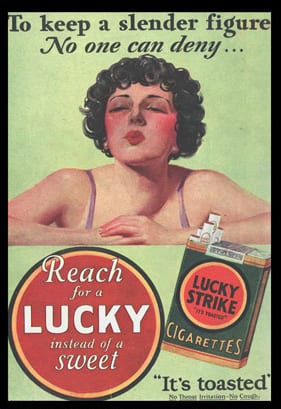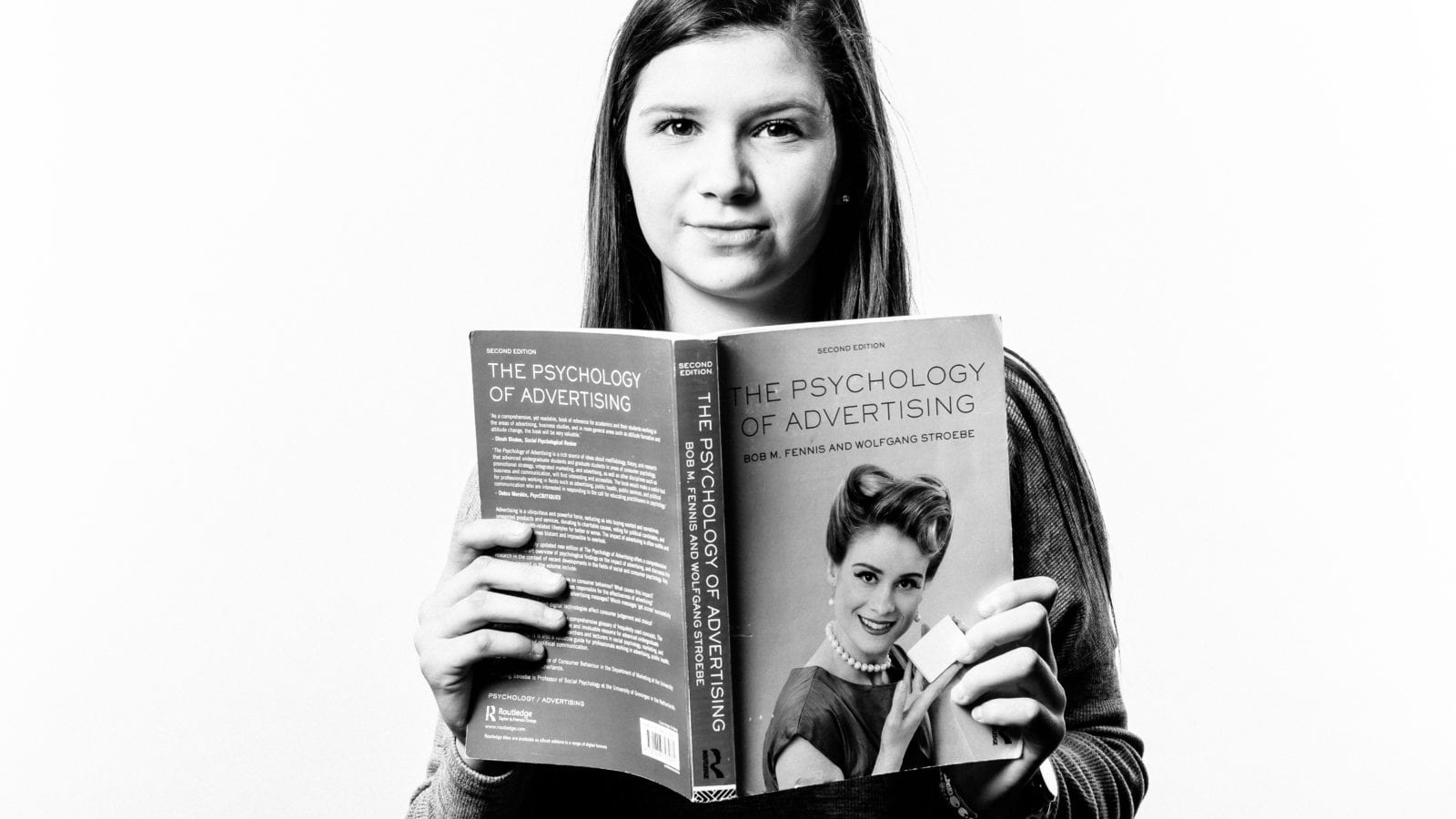The Scholar: Abbie Foster
The Project: The History of Advertising: Culture, Creativity, Conformity, and Capitalism
The Essential Question: Ms. Foster reviews the origins and evolution of modern advertising, showcasing a number of noteworthy campaigns from the past that employed insights from the emerging field of psychology. She notes that advertisements have been both a reflection of societal change and a catalyst for it.
Noteworthy Quote: “After World War I, the American Tobacco Company was concerned that it was socially unacceptable for women to smoke. [Edward] Bernays tapped into the women’s suffrage movement and led a public relations campaign focused on women’s equality. It was called ‘Torches of Freedom.’ If men can smoke, why can’t women? The campaign was an enormous success. Soon, individual tobacco companies began to run ads specific to women. Lucky Strike cigarette ads had a picture of a young woman stating, ‘To keep a slender figure, no one can deny… Lucky Strike.’ It encouraged women to reach for a Lucky instead of a sweet. A Philip Morris ad had an image of a woman smoking with the caption ‘Believe in yourself!’ The results were impressive: women became big smokers.”
Biggest Challenge: “It was easy to choose my topic because I was really interested in advertising and psychology and history, but it took me quite a while to narrow it down. I had many meetings with my teacher before I finally got it. But once I did, it was really rewarding to have a specific idea that I could focus on.”
Surprising Discovery: “How much knowledge and information I got out of it. There are so many books and websites and movies on my topic. There was almost too much information!”
Tip for Future Scholars: “Go into the class having an idea of what you are interested in and what you want to do. Think of one idea and definitely start early, stay on top of it. It’s a lot of work, it goes by really fast, and it’s a big project. As long as you stay organized, it will all be good.”
From Her Presentation: An early advertisement for cigarettes that tapped into the evolving social identity of women.



